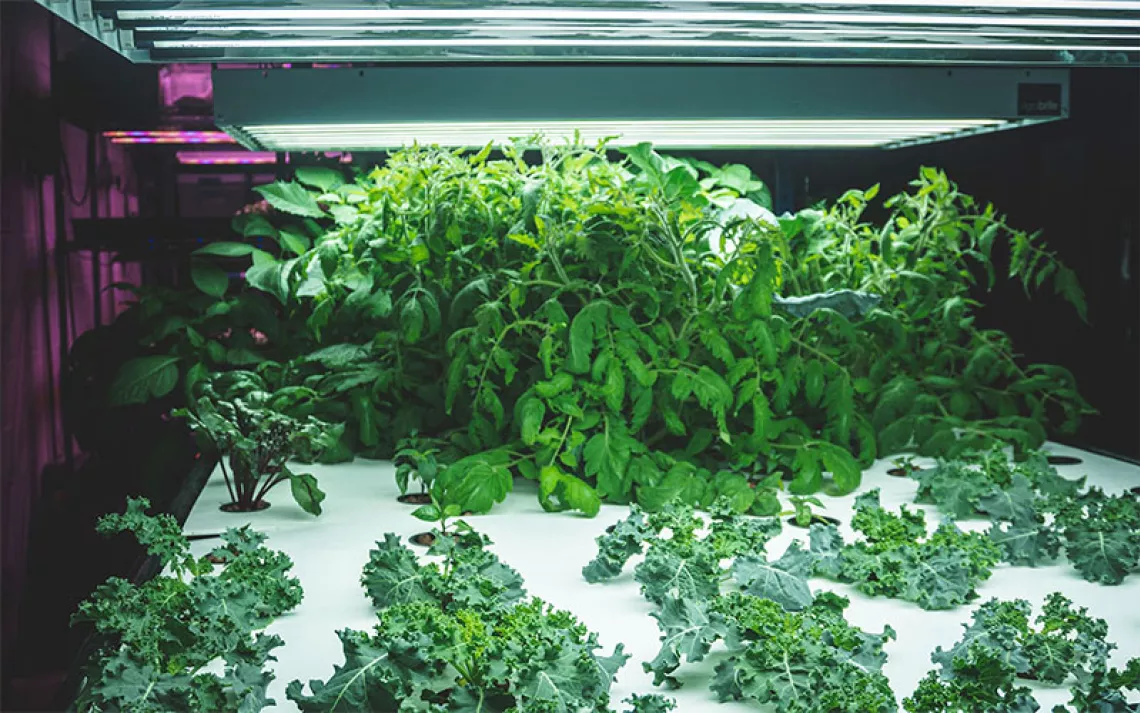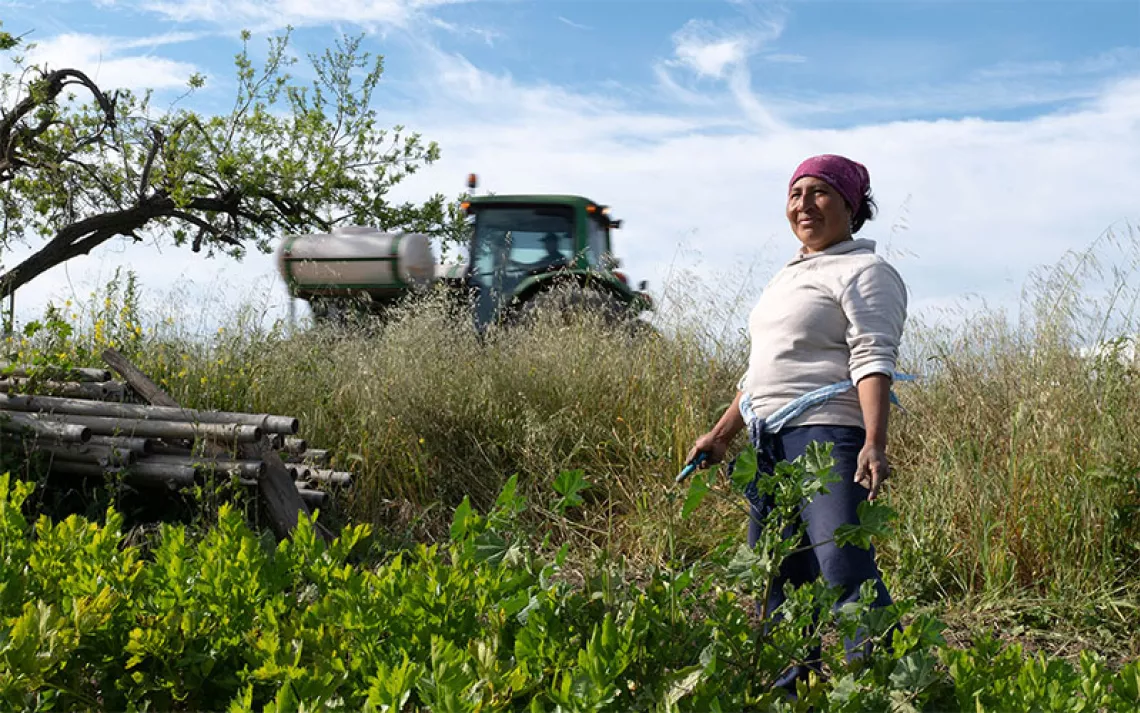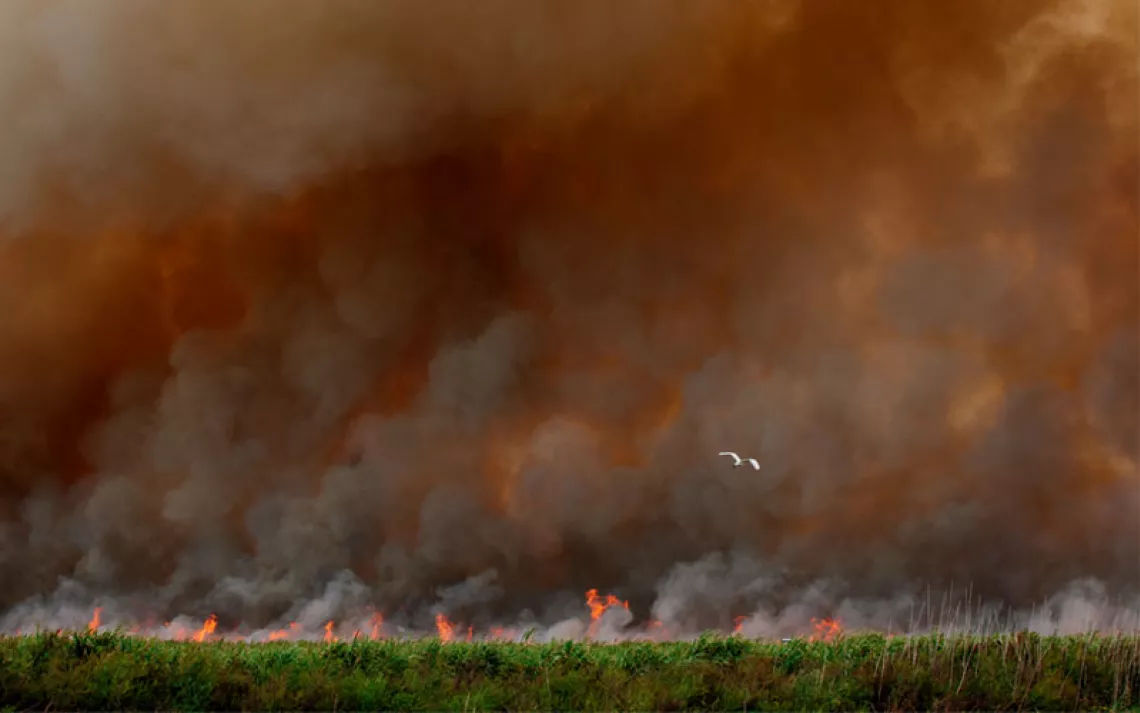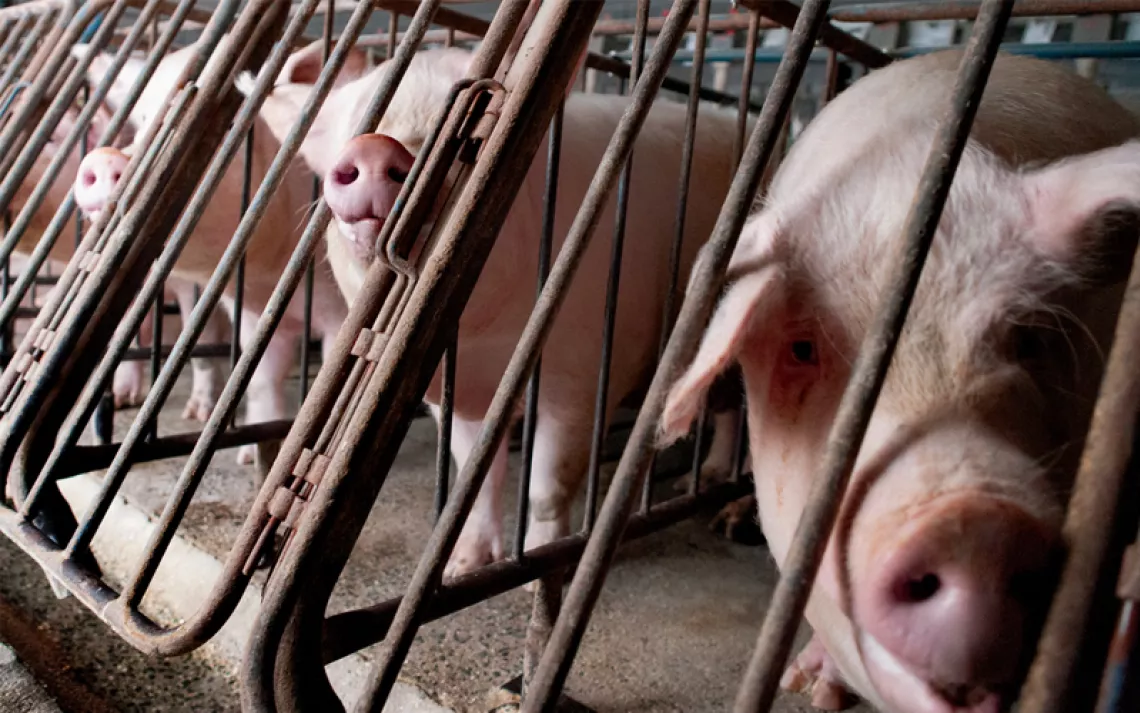Refugees Welcome Here
Small farm plots in Burlington, Vermont, help integrate new arrivals

Farmer Janine Ndagijimana leases land through the New Farms for New Americans program.
|Photos courtesy of New Farms for New Americans
At a time when some are trying to make “refugee” a slur, a program in Burlington, Vermont, is connecting new arrivals to their community through food and farming.
For Janine Ndagijimana, born in a refugee camp in Rwanda, where she lived for 13 years, New Farms for New Americans has allowed her to invest in a community that appreciates her agricultural gifts. Now an American citizen who has called Vermont home for nearly a decade, she rents a three-quarter-acre plot (as well as some additional land from a local farmer), paying the program $50 a year for each 16th of an acre. She’s a relatively new farmer compared to many of the former subsistence growers who also participate in the program, but she’s still able to raise much of her family’s food and make extra cash selling produce at the local farmers' market and to farm-to-table restaurants.
Burlington, says Alisha Laramee, a program specialist for New Farms for New Americans, is “an agricultural, foodie community that gets excited about new crops.” And she calls Ndagijimana a visionary with a knack for both farming and business. Ndagijimana started with the program in 2012. Just five years later, she’s running a small business growing intore, an eggplant cultivated across Africa but not widely available in the United State. The bright green, oval eggplants are crunchier and more bitter than standard globe eggplants; at home, Ndagijimana says, she’d cook them in goat stews or in a savory peanut sauce. In Burlington, local restaurants like Butch and Babe’s serve them up fried Southern style, like green tomatoes.
Beyond popularizing her signature eggplants in Burlington, Ndagijimana has become a primary source of intore for the entire country. “I’m currently shipping them to Texas, Arizona, and Utah,” she says through her translator, Pacifique Nsengiyumva. Next, she plans to grow interesting hot peppers and a leafy green called amaranth, also used widely across Africa.
When New Farms for New Americans was established in 2007, its intent was to assist refugee women who were disconnected from the larger community by language barriers or a lack of childcare and transportation. “It was mostly a social experience for women who had gardening in common,” says Laramee. “Women could bring their kids to the farm and get out of the house.”
 Cultivating African eggplants called intore through the New Farms for New Americans program. The program rents out plots to 80 families; some farmers work night shifts at local factories or hospitals and then grow food for their families during the day. Some are grandparents too elderly to work full time but who still want to contribute to the family. They’re a wealth of agricultural knowledge, sharing tips about grinding corn, preserving and fermenting, and extending the growing season. (Since Vermont is much colder than the tropical or arid climates from which many refugees came, farmers are also taught how to extend growing seasons using greenhouses.)
Cultivating African eggplants called intore through the New Farms for New Americans program. The program rents out plots to 80 families; some farmers work night shifts at local factories or hospitals and then grow food for their families during the day. Some are grandparents too elderly to work full time but who still want to contribute to the family. They’re a wealth of agricultural knowledge, sharing tips about grinding corn, preserving and fermenting, and extending the growing season. (Since Vermont is much colder than the tropical or arid climates from which many refugees came, farmers are also taught how to extend growing seasons using greenhouses.)
Many participants cultivate the ingredients necessary for making favorite recipes. Indra Khadka, a Bhutanese refugee, grows mustard greens to go in ema datshi, Bhutan's national curry. Others grow mustard greens and daikon that they can pickle and preserve to be eaten throughout the year. Also popular is bitter melon, common to many Asian and African countries.
But in recent years, entrepreneurial farmers like Ndagijimana have helped develop it into a larger, three-tiered program that includes social enterprise, community gardening, and learning to sell at market. This 7.5-acre farm with two locations on the outskirts of Burlington now hosts farmers from all over the world, including Bhutan, Myanmar, Somalia, Burundi, and Rwanda. Many escaped war, persecution, and other experiences that would be hard for many Americans to even imagine. It’s an outpost of diversity, where everyone can learn from the newest Americans through the farm-fresh ingredients that they produce.
 The Magazine of The Sierra Club
The Magazine of The Sierra Club



